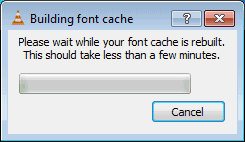DRM Free Music from iTunes hides account info
Many users were quite happy when Apple announced that they would be selling drm free music on its iTunes online store. DRM free means that customers would finally have no issues playing the music they purchased in any device that they owned, including music players on the computer, mp3 players, the car or gaming systems.
The price of DRM free songs is higher than that for music with DRM. I expected an outcry when Apple announced this but this somehow never happened.
The possibility to download drm free music is now available on iTunes and several websites have already examined the new DRM-free music files.
As Arstechica puts it: "We started examining the files this morning and noticed our names and e-mail addresses in the files". This information is however stored in all songs that are downloaded from the iTunes store, not only in drm free songs.
While it has not been a real concern before it could become one now.While users won't probably add DRM-free music that they have purchased freely to P2P folders or offer them on websites, it is likely that this may happen occasionally nevertheless.
Users who purchase songs may share them with friends or family members which is when they lose control over the file's distribution. The main issue here is that the original purchaser's name and email is listed in the music file so that anyone can trace back the file to the account.
If such a song is distributed via P2P, it would be easy enough for rights holders to identify the originating party. While it is unlikely that many users will share songs they have purchased on their own, a single successful hack of a system, the purchase of a used computer or hard drive, or the sending of the song to a close friend, may be enough to get you into serious trouble.
Will you be responsible if millions of users share songs with your name in them?
Advertisement




















It should be fairly easy for most crackers to alter or at the very least simply erase the personal info. Don’t be surprised if there’s a utility that does something of that sort appears very soon.
Besides, if a file with x’s personal info is hosted on y’s computer, x’s lawyers could find a hundred loopholes (eg: they were stored on an old PC’s hard drive that x disposed off) to prove it was not a voluntary. I think the rules of the game are pretty much the same. RIAA still has diddlysquat!